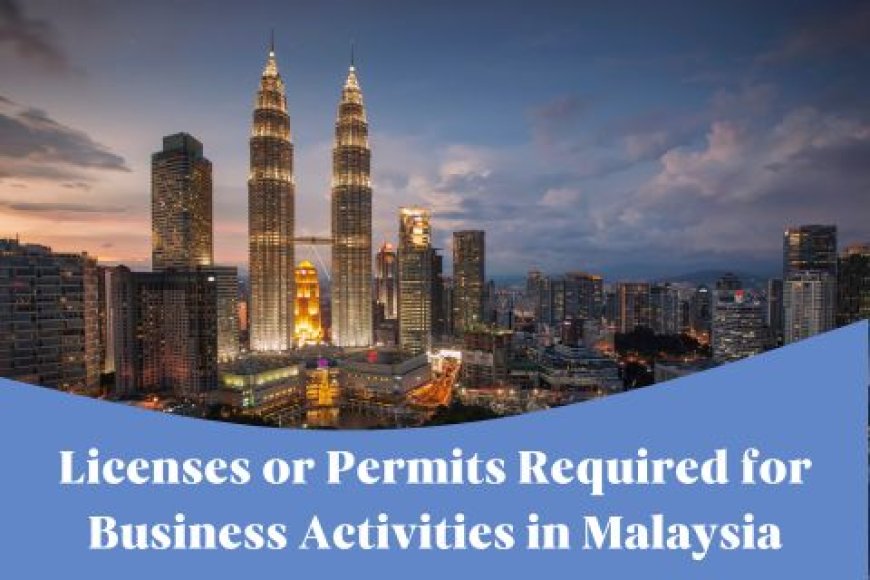Licenses or Permits Required for Business Activities in Malaysia
Starting a business in Malaysia necessitates obtaining a valid business license. This license can be applied for through the Pihak Berkuasa Melesen (PBM), relevant to the business's location and activity.

Starting a business in Malaysia necessitates obtaining a valid business license. This license can be applied for through the Pihak Berkuasa Melesen (PBM), relevant to the business's location and activity. Compliance with licensing requirements is crucial, as operating without the necessary licenses can result in significant liability. There are different types of licenses required, including general licenses, industry-specific licenses, and activity-specific licenses.
General Business Licenses
General business licenses are mandatory when the first formation of company in Malaysia. These licenses ensure that all necessary company, tax, employer, and other registrations are covered. Examples of general business licenses include:
- Company Registration: Every business must be officially registered.
- Company and Employees Income Tax Registration: Registration for taxation purposes.
- Employees Provident Fund (EPF): A mandatory savings and retirement plan for employees.
- Social Security Organisation (PERKESO): Social security coverage for employees.
- Human Resources Development Fund (HRDF): A fund dedicated to training and skills development.
- Business Premise Licenses and Signboard Licenses: These trade licenses vary by state and are required for operating and advertising the business premises.
Industry-Specific Licenses
Certain industries require specific licenses in line with government policies aimed at developing particular sectors of the economy. Examples of industry-specific licenses include:
- Manufacturing Sector: Licenses specific to manufacturing activities.
- Wholesale/Retail Trade: Required for businesses involved in distribution, including wholesalers, retailers, franchise practitioners, direct selling trades, and international trading companies.
- Telecommunication and Broadcasting Sectors: Licenses for operating telecommunication and broadcasting services.
- Oil Exploration Sector: Permits for oil exploration activities.
- Banking Sector: Licenses required for banking operations.
- Insurance: Licenses for insurance-related activities.
Activity-Specific Licenses
Activity-specific licenses regulate particular activities and may apply to multiple industries. These licenses ensure compliance with guidelines designed to protect citizens' interests, employment, worker safety, the environment, and the general public. Examples of activity-specific licenses include:
- Certificate of Fitness for Certified Machinery: Ensures machinery meets safety standards.
- Approval for Expatriate Employment: Permits for hiring foreign employees.
- Approval to Install/Re-site/Alter Air Pollution Control Equipment: Environmental compliance permits.
- Building Plan Approval: Authorization for construction projects.
- Sales Tax License: Required for collecting sales tax.
Business License Application Process
Determining the Required Licenses
The first step is to research and identify the specific licenses needed for the business. This involves understanding the nature of the business activities and the relevant regulatory requirements.
Preparing and Filing the Application
Once the necessary licenses are identified, the next step is to prepare and file the application with the relevant government authorities. This process may involve gathering various documents, completing application forms, and paying applicable fees.
Acquiring the License(s)
After applying, the processing time will vary depending on the license type. Once the licenses are acquired, the business can legally commence operations.
Conclusion
Obtaining the appropriate licenses and permits is critical in starting a business in Malaysia. Ensuring compliance with regulatory requirements not only avoids potential liabilities but also establishes a strong foundation for the industry. Understanding the different types of licenses—general, industry-specific, and activity-specific—and navigating the application process efficiently can save time and resources, allowing business owners to focus on their core activities and growth.
Read More: How to incorporate a company NZ
What's Your Reaction?



























